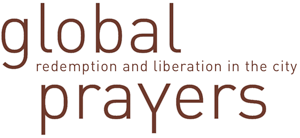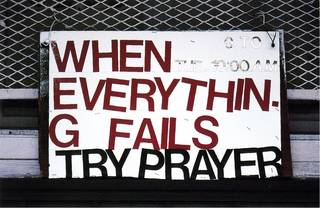In the transdisciplinary project Global Prayers, the question of the process of knowledge production played a central role from the outset. We worked with a variety of contexts and settings as individual case studies, collective workshops as well as formats of book publications, public debates and events to apply and reflect on the research proces- ses, approaches, and procedures. One of the basic ideas was that the participating social and cultural academics, artists, musicians, and activists were to collaborate. That also meant exchanging views on the various research settings and reflecting on these procedures together.
The interdisciplinary approach connects with debates within the field of present-day (critical) urban research, where there is a growing realization that urban configurations, collective imaginations, and complex relationships of networks and power cannot be examined, analyzed, and interpreted using the classical methods of social science. Much the same goes for the highly politicized and conflict-laden topic of religion.
A large number of the Global Prayers projects are based on ethnographic or documentary approaches that are informed by exploratory and induc- tive procedures. The focus is on everyday practices that are localized at a micro level and are examined under the aspect of discourses and prac- tices of governance that are involved in the constitution of the urban.
Beyond recent debates on formats of new research practices around the term artistic research, the research concept behind the Global Prayers project reflects practices for the production of knowledge as movements of quest between knowing and not-knowing, as methodic experiments, critical self-reflection, and, above all, as a process of experience. There is a focus on the unknown, the still unasked. In this sense, "research" is to be understood as "search": a re-search, a new look at things and phenomena.


